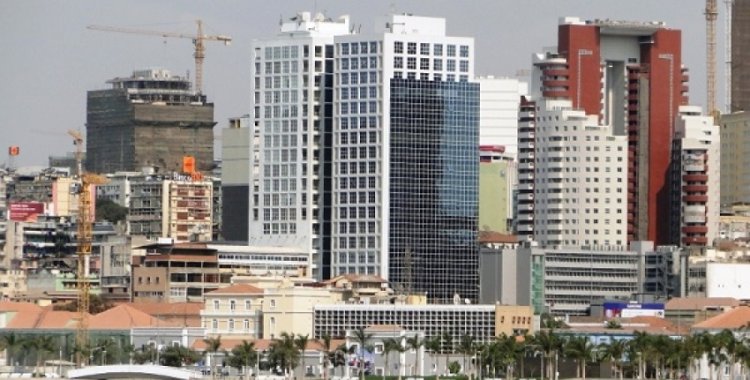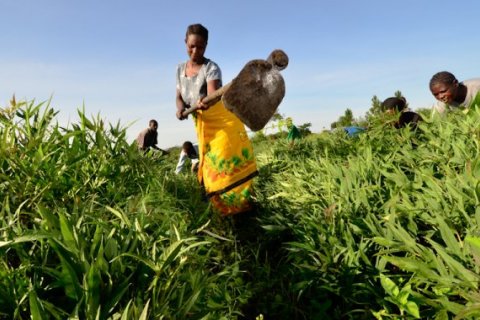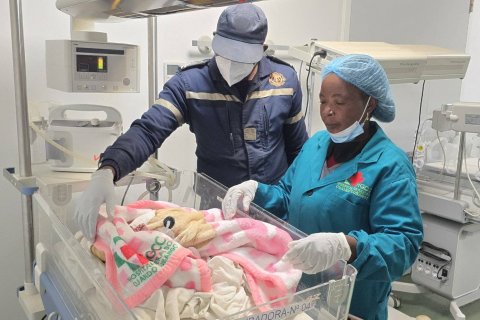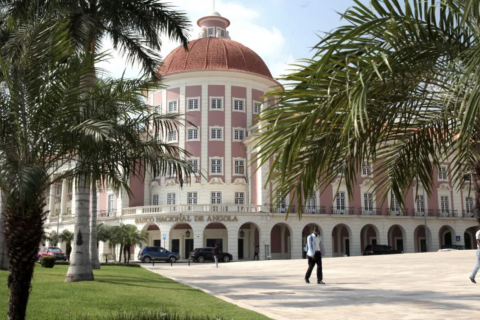"Angola has 748 million dollars in interest owed on sovereign bonds to be paid between May and December," Tim Jones told Lusa.
The leader of the NGO added that "data from the World Bank's International Debt Statistics department indicate that in addition to these bonds "contracted before 2018, they have to pay 1,959 million dollars this year.
"Based on the bond ratio, we estimate the amount to be paid between May and December to be 1,450 million, dollars plus 748 million in interest, giving a total of about 2.2 billion dollars," explained Tim Jones.
The director of the Jubilee Debt Committee (CJD) department, an entity dedicated to defending sustainable debt in the most vulnerable countries, detailed: "In May alone there will be 16 payments worth 620 million dollars in nine countries, including Angola, which will have to disburse 71.25 million dollars on 12 and two other payments on 26, of 57 and 70 million dollars, a total of almost 200 million dollars".
Speaking to Lusa, Tim Jones explained that the accounting of the debt that the most vulnerable countries, many of them African, have to make, comes under a document that the CJD prepared to defend that the British Parliament approve a law to prevent creditors from suing states that, following the recommendation of the G20, do not pay the debt due to financial difficulties to fight the covid-19 pandemic.
"More than 99 of the sovereign bond contracts were signed under English or New York law, but of the 24 countries with contracts of this kind pointed out by the G20 [in the debt relief agreement], 90 percent were signed in London, which means that if a government suspends debt payments as advocated by the G20, any creditor can sue that government in the London Supreme Court, so the British authorities should protect governments that choose to implement that suspension of payments," he explained.
According to CJD calculations, of the 77 countries covered by the G20 initiative, 46 will have to pay 9.4 billion dollars between May and December, "but the total amount is likely to be higher, since there is a lot of debt that is not accounted for in a transparent way and is therefore impossible to incorporate".
Tim Jones' statements follow public discussion in Africa's financial markets about how governments can honour their commitments and, at the same time, invest in the expenditure needed to contain the pandemic caused by the new coronavirus, whose death toll in Africa is approaching 2,000, in almost 50,000 recorded cases.
The assumption of the debt problem as a central issue for African governments was well reflected in the concern that the International Monetary Fund (IMF) and the World Bank dedicated to the issue at the Annual Meetings held in April in Washington, where they made funds available and agreed on a moratorium on paying the debts of the most vulnerable countries to these institutions.
On 15 April, the G20, the group of the 20 most industrialised nations, also agreed to a 20 billion dollars bilateral debt suspension for the 77 poorest countries, many of them African, by the end of the year, challenging private creditors to join the initiative.
The International Finance Institute (IFI), which brings together creditors worldwide, announced last week its intention to participate in the G20 initiative which proposes a suspension of payments to creditors between May and December, but without committing to the terms and without providing details, estimating that the sovereign debt and interest on loans taken out by developing countries and the poorest to be paid out this year would be around 140 billion dollars.
Furthermore, the African Union and the United Nations Economic Commission for Africa (UNECA), among other institutions, are drawing up a plan to exchange the countries' sovereign debt for new concessional bonds that could prevent the funds needed to combat covid-19 from being used to pay creditors.
This financial mechanism would be guaranteed by a multilateral bank with a triple A rating, the highest, or by a central bank, which would convert the current debt into securities with a longer maturity, benefiting from five years of exemption from payments and lower coupons (interest payments), according to the UNECA.
Another hypothesis, put forward by the African Union Special Representative for the Pandemic Response, Ngozi Okonjo-Iweala, is that this financial vehicle ('Special Purpose Vehicle' in the original English) could also be financed by the Special Drawing Rights that the richest nations have in the IMF, and which comprise the Fund's reserves.







